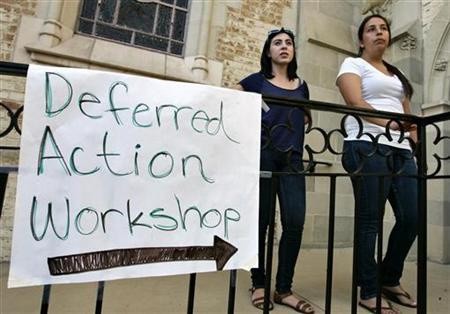Will DACA Policy Benefits be Enough to Sway Supreme Court Decision?

The Deferred Action for Childhood Arrivals (DACA) policy and its future will soon be determined as Supreme Court is set to reveal its decision soon. Whether it will continue or not is up in the air at the moment. However, if the proponents of a new report are asked, the DACA has immensely helped immigrants lives for the better.
Harvard Graduate School of Education professor Roberto Gonzales believes the program should continue. He spearheaded a new study that revealed the benefits immensely improved the lives of the immigrants and provided much-needed boost to the economy.
In a report released by the Immigration Initiative at Harvard, it stated the long term impacts of DACA. It sampled different recipients of the program in six different states and covered a 7-year span. Gonzales and his colleagues started monitoring immigrants enrolled under the Deferred Action for Childhood Arrivals in 2012.
The result showed what they knew from the beginning: the recipients had higher income wage, sometimes even double the salary, and some even went on to become professionals. All of these happened because of the program.
In the seven states included in the study, it was revealed that the recipient received different benefits. Although DACA is implemented across the nation, the state policies will still determine the type of benefits that enrollees can get.
In Arizona, Georgia and Indiana, the undocumented recipients did not have access to in-state college tuition fee perks. Moreover, California, New York, and Illinois have given opportunities for DACA fellows to pursue licensed career fields. The same cannot be said in other states such as Arizona, Georgia, Indiana, Alabama and South Carolina, NBC News reported.
There is an estimate of 800,000 immigrants working and studying in the U.S. right now. If the Supreme Court decides to scrap it due to illegality, it is feared that the gains and benefits of the DACA program will be put to waste. Gonzales recommended some ideas about the continuity of the program. "In the long term, national legislation that includes a pathway to legalization would resolve most challenges experienced by DACA beneficiaries and their families," he added.
The Supreme Court is set to reveal its decision this week. President Donald Trump has already ended the program which was started by his predecessor, former president Barack Obama in 2012. While Trump believes that DACA is unconstitutional, he threw his support to the "Dreamers" two years ago and asked the Congress to pass laws allowing them to stay.
The decision is not focused on the legality of the program but more on the legality of Donald Trump's effort to end it. The Democrats tried to bargain last year. It offered $25 billion to finance the border wall of President Trump, in exchange for immigrants citizenship but the Trump rejected it.
The administration is bent on ending DACA policy and even enforced a travel ban which was outlawed twice. The future of many undocumented immigrants is at stake and consequently, the future of the economy as well. Whatever the Supreme Court decides, it will shape the result of the elections in one way or another. The recipients know one thing: they need the DACA policy because it gives them a chance to prove they can change their lives for the better.
Subscribe to Latin Post!
Sign up for our free newsletter for the Latest coverage!

















